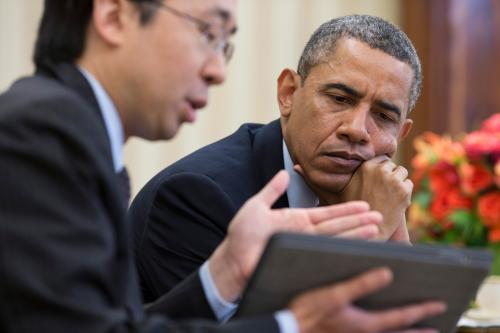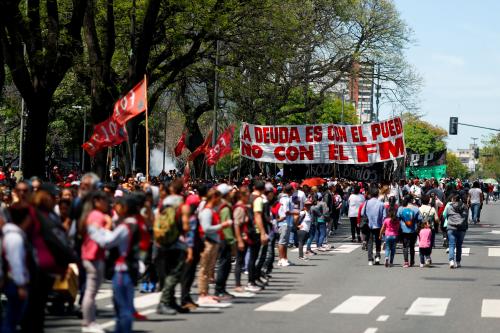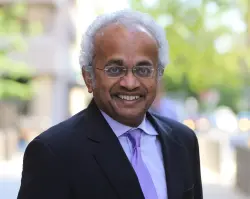Development in general, and development assistance in particular, were initially based on trying to solve market failures. Infrastructure—bridges, dams, ports, power plants, etc.—exhibited economies of scale and would suffer from coordination failures to the private sector. Externalities in education meant that schooling should be publicly financed and provided. Infant-industry arguments and capital-market failures led to the establishment of public enterprises. Since these developing countries also lacked savings (possibly due to capital-market failures), donors provided the financing, as well as the technical assistance to design the bridge or school system. The idea of a “project,” where knowledge and financial assistance were bundled, was born.
Note that in this setting, the interests of citizens, the government, and the donors were aligned. The government could take credit for solving market failures, and donors would support government with finance and knowledge.
Unfortunately, the solutions to these market failures led to a series of government failures. Lacking commercial incentives, many state-owned enterprises were inefficient and ran huge losses. Despite billions of dollars of investment, Africa had a huge infrastructure deficit and the highest road transport prices in the world. Energy subsidies in the Middle East and North Africa (MENA) not only accrued to the better off, but they were draining public coffers, increasing traffic congestion and pollution, and contributing to water depletion. Students were enrolled in primary schools, but learning outcomes were extremely poor, at least partly due to high rates of teacher absenteeism.
Furthermore, these government failures were difficult to overcome because they represented a political equilibrium. Teachers in Indian public schools are absent 25 percent of the time because teachers run the campaigns of local politicians who then reward them with a no-show job. Many countries in MENA don’t reform energy subsidies because people, including those who don’t benefit from the subsidies, will protest in the streets and the government may fall. Transport prices in Africa are the highest in the world because of regulations that prohibit entry into the trucking industry, giving monopoly power to the existing trucking companies, which are often owned by a relatives of a government officials.
In a recent paper, Stuti Khemani and I explore what external actors—aid donors, development partners, advisers—can do to help countries that are stuck in these situations. Stuti’s recent book, “Making Politics Work for Development,” noting that entrenched beliefs and behavior may be really hard to change, proposes a way of thinking about the problem and continuously tackling it to do better.
How? By engaging citizens and promoting transparency on the basis that politicians respond to incentives. If citizens select and sanction leaders based on their performance in providing public goods—as opposed to private goods such as vote-buying or offering jobs to particular ethnic groups—then it is possible that politicians will run on platforms that promise these public goods and, when in office, deliver on them.
Furthermore, given the sharp increase in contested elections over the past 25 years, there is an opportunity to support “healthy” citizen engagement, one where citizens demand accountability from their leaders at elections and while in office. And a way of getting healthy citizen engagement is by increasing the transparency of information. Rigorous evidence shows that transparency increases voter turnout and the likelihood of removing corrupt leaders from office, and reduces clientelism.
So how can external actors help? If the reason for the government failure is political, then it is unlikely that traditional development interventions will solve the problem. Budget support conditioned on policy reforms may not work if there is no domestic political consensus for the reforms. An investment project into a distorted policy environment—an energy project in a country with high energy subsidies, for example—will increase the distortion. And knowledge assistance, such as a study on the costs of agricultural subsidies, which is typically given to the government, is not helpful in overcoming the political forces that benefit from the subsidies.
Instead, we propose that the traditional project be unbundled, and knowledge assistance be separated from finance. The knowledge should be provided to citizens—whether or not the government approves—to enhance their ability to hold leaders accountable.
This has several implications: First, knowledge should be accessible to ordinary citizens, using media and other vehicles that they normally use to obtain information. Second, the information should be in a form that is salient for citizen engagement. For instance, information about teacher absentee rates should be provided according to the jurisdictions that the politicians are elected from.
Finally, the financial assistance should not be provided through projects, but rather in a lump-sum fashion (which the government can then decide to spend on individual projects). Rather than being conditional on policy reforms, as traditional budget support is, this financial transfer should be conditioned on the government’s making its activities more transparent to its citizens. For instance, the government should not only make its budget available to citizens, but also inform them about how much of the budget is actually arriving in each district. Studies show that such transparency initiatives improve both intermediate and final outcomes.
Note that this proposal is not that different from current practice. The amount of concessional finance that a low-income country receives from the World Bank’s International Development Association is fixed by a formula. And many knowledge products are disseminated to the general public. But we are proposing a much more concerted effort on transparency and citizen engagement. Information has to be purposefully targeted to the political jurisdictions where leaders are selected and sanctioned. The content, communication method, and timing are crucial parameters. We also need more scientific understanding of how people receive information and what difference it makes. None of these are soft options. Nor are they silver bullets. But they are a way for external actors to focus their efforts on healthy citizen engagement and transparency, thereby helping to overcome the political obstacles that are standing in the way of poor people escaping poverty.
The Brookings Institution is committed to quality, independence, and impact.
We are supported by a diverse array of funders. In line with our values and policies, each Brookings publication represents the sole views of its author(s).








Commentary
What to do when politics is “the problem”
September 15, 2016